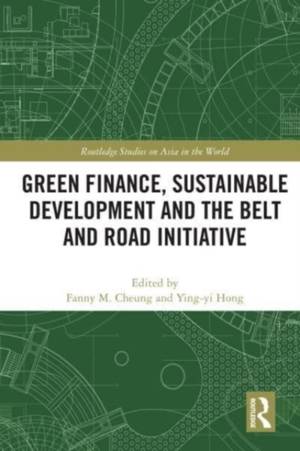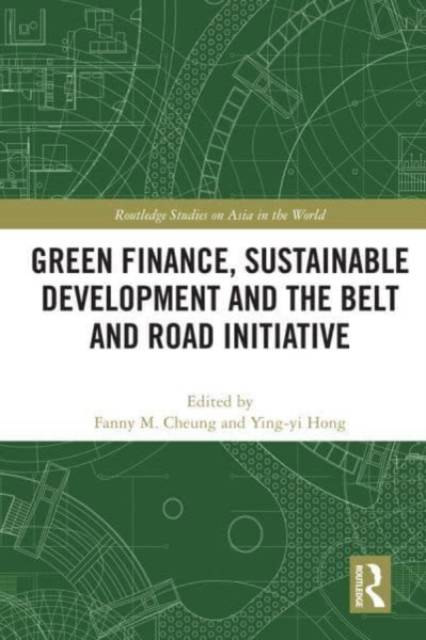
- Retrait gratuit dans votre magasin Club
- 7.000.000 titres dans notre catalogue
- Payer en toute sécurité
- Toujours un magasin près de chez vous
- Retrait gratuit dans votre magasin Club
- 7.000.0000 titres dans notre catalogue
- Payer en toute sécurité
- Toujours un magasin près de chez vous
Green Finance, Sustainable Development and the Belt and Road Initiative
Description
Can China's Belt and Road Initiative (BRI) promote sustainable development, alongside its primary aims of increasing commercial connectivity with China's partners?
In discussions of the BRI the focus has tended to be on the implications for infrastructure construction, connectivity, and economic diplomacy. Rather less attention has been paid to its potential impact on sustainability. The initiative has not only set principles to prevent climate change and promote sustainable development, but also pledged to align with the UN's environmental objectives. The contributors to this volume describe and evaluate the consequent policy coordination in the areas of green finance, green energy, and sustainable development in the Belt and Road regions. They examine both the challenges and opportunities of these projects, and the role that Hong Kong can play in supporting their assessment, finance, and implementation. With contributions from authors based in mainland China, Hong Kong, Australia, Qatar, the UK, and the US - with experience in corporate social responsibility, international finance, environmental policy, and international relations - this book presents a thorough and rigorous analysis of the green side of the BRI.
A valuable resource for scholars of the BRI and its many implications for China, its partners, and the development of sustainable infrastructure.
Spécifications
Parties prenantes
- Editeur:
Contenu
- Nombre de pages :
- 312
- Langue:
- Anglais
- Collection :
Caractéristiques
- EAN:
- 9780367675400
- Date de parution :
- 31-05-23
- Format:
- Livre broché
- Format numérique:
- Trade paperback (VS)
- Dimensions :
- 156 mm x 234 mm
- Poids :
- 458 g

Les avis
Nous publions uniquement les avis qui respectent les conditions requises. Consultez nos conditions pour les avis.





